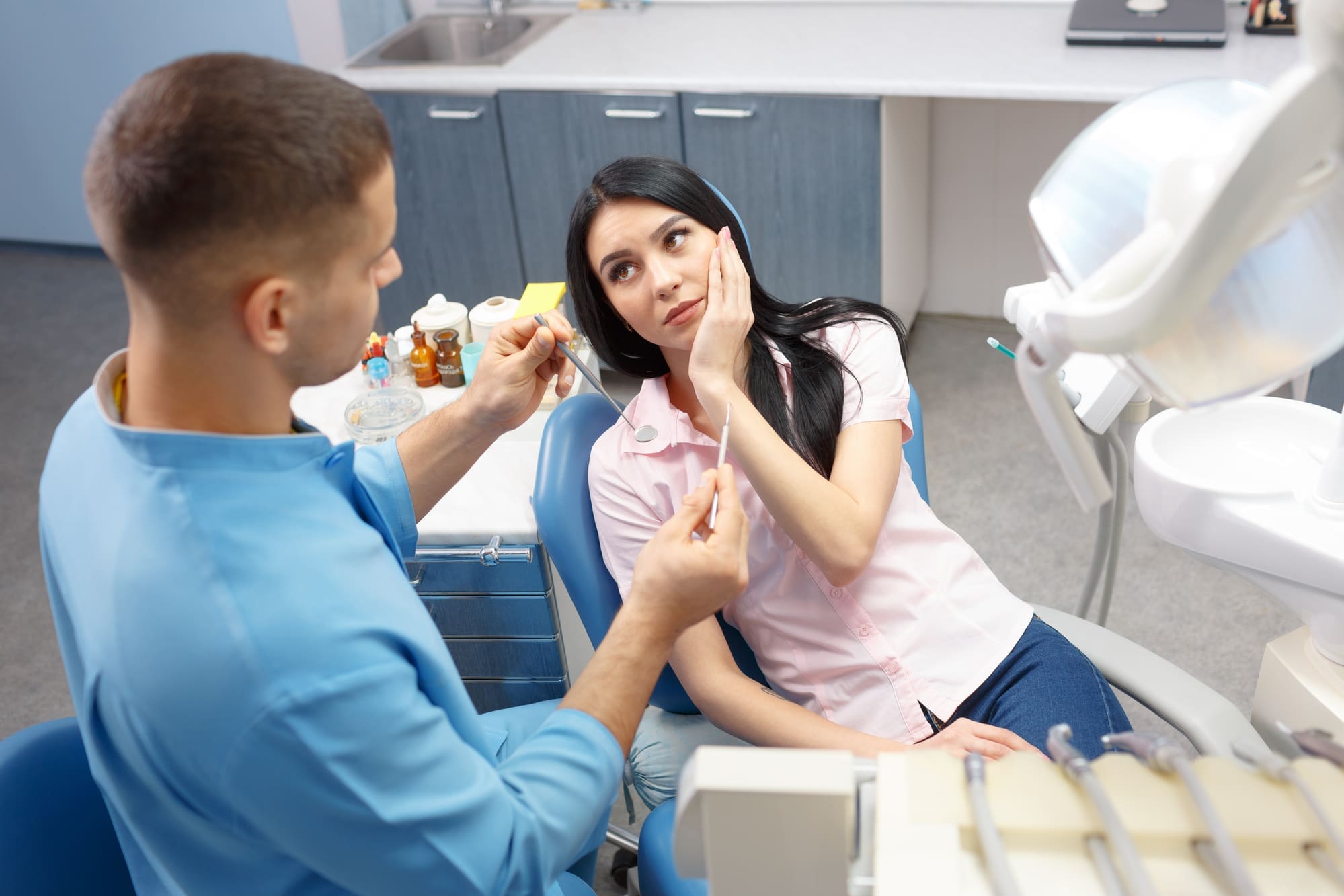Ever found yourself in agony and wondering about emergency tooth pain: immediate relief tips? Emergency tooth pain can strike at the most inconvenient times, leaving you desperate for quick solutions. Understanding the basics of what might help can provide some comfort until you can seek professional care.
Emergency Tooth Pain: Understanding Emergency Tooth Pain
Emergency tooth pain can be an incredibly distressing experience, often striking without warning and causing significant discomfort. This type of pain can stem from various issues, such as a severe cavity, a cracked or broken tooth, an abscess, or even gum disease. Identifying the root cause of the pain is crucial for determining the appropriate course of action. Immediate relief measures, such as rinsing with warm salt water, taking over-the-counter pain relievers, and applying a cold compress, can help manage the pain temporarily until you can see a dentist.
It’s important to recognize when emergency tooth pain requires professional intervention. Persistent or severe pain, swelling, fever, or difficulty swallowing are all signs that you should seek immediate dental care. Ignoring these symptoms can lead to more serious complications and prolonged discomfort. For more detailed information on when to seek professional help, visit our guide on When To Seek Emergency Dental Care: Signs.“`html
Common Causes of Tooth Pain
Emergency tooth pain can be a distressing experience, often arising from a variety of underlying issues. One common cause is dental decay, where cavities form due to the breakdown of tooth enamel by acids produced by bacteria. Another frequent culprit is gum disease, which can lead to inflammation and infection of the tissues surrounding the teeth. Additionally, tooth pain may result from dental abscesses, which are pockets of pus caused by bacterial infections.
Other potential causes of emergency tooth pain include trauma or injury to the teeth, such as fractures or cracks, and bruxism, which is the habitual grinding or clenching of teeth. Sometimes, pain can also stem from issues unrelated to dental health, such as sinus infections that create pressure in the upper teeth. If you are experiencing severe discomfort, consider exploring Urgent Dental Services Bozeman for professional assistance.
Recognizing Severe Tooth Pain
Understanding the signs of severe tooth pain is crucial, especially when it comes to emergency tooth pain. Severe tooth pain often manifests as a sharp, throbbing, or constant ache that can disrupt daily activities and sleep. It may be accompanied by swelling, fever, or a bad taste in the mouth, indicating a possible infection or other serious dental issues. Recognizing these symptoms early can help in identifying the need for immediate attention and addressing the underlying cause of the discomfort.
Temporary Pain Relief Methods
When you’re experiencing emergency tooth pain, finding temporary relief can be crucial until you can see a professional. Simple actions like avoiding extreme temperatures and maintaining good oral hygiene can help manage discomfort. Remember, these methods are only temporary and should not replace professional dental care. For more information or to schedule an appointment, visit Stone Dental Lodge, your trusted Bozeman Dentist.
When to Seek Professional Help
If you’re experiencing emergency tooth pain, it’s crucial to know when to seek professional help. Persistent or severe pain, swelling, fever, or difficulty swallowing could indicate a more serious underlying issue that requires immediate attention. Ignoring these symptoms can lead to complications, so it’s important to consult a dental professional promptly to address the root cause of your emergency tooth pain.
Managing Pain at Night
Dealing with emergency tooth pain can be particularly challenging at night when dental offices are closed, and the discomfort can disrupt your sleep. To manage pain effectively, start by rinsing your mouth with warm salt water to reduce inflammation and kill bacteria. Applying a cold compress to the affected area can help numb the pain and reduce swelling. Over-the-counter pain relievers like ibuprofen or acetaminophen can also provide temporary relief. Elevating your head with an extra pillow can prevent blood from pooling in your head, which often intensifies tooth pain. These strategies can help you get through the night until you can seek professional dental care.
Foods to Avoid with Tooth Pain
When dealing with emergency tooth pain, it’s crucial to be mindful of your diet to prevent exacerbating the discomfort. Avoid hard foods like nuts and candies that can cause further damage to sensitive teeth. Steer clear of extremely hot or cold foods and beverages, as they can trigger sharp pain in affected areas. Acidic foods such as citrus fruits and tomatoes should also be avoided, as they can irritate the tooth’s nerve endings. By making these dietary adjustments, you can help manage your emergency tooth pain more effectively while seeking professional dental care.
Oral Hygiene During Tooth Pain
Maintaining proper oral hygiene is crucial, even when you’re experiencing emergency tooth pain. Brushing your teeth gently with a soft-bristled toothbrush can help remove food particles and bacteria that might exacerbate the pain. Use a fluoride toothpaste to strengthen your enamel and reduce sensitivity. Flossing carefully around the affected area can also prevent further irritation. Additionally, rinsing your mouth with a warm saltwater solution can provide temporary relief by reducing inflammation and killing bacteria. Remember, while these steps can offer some comfort, they are not a substitute for professional dental care. If your emergency tooth pain persists or worsens, it’s essential to seek professional help immediately to address the underlying issue and prevent complications.
Preventing Future Tooth Pain
While finding immediate relief for emergency tooth pain is crucial, taking steps to prevent future occurrences is equally important. Regular dental check-ups, maintaining good oral hygiene, and addressing minor dental issues before they escalate can significantly reduce the risk of emergency tooth pain. Brushing twice a day with fluoride toothpaste, flossing daily, and avoiding sugary foods and drinks are essential practices. Additionally, wearing a mouthguard during sports and avoiding using your teeth as tools can help protect against unexpected dental emergencies. By incorporating these preventive measures into your routine, you can minimize the chances of experiencing emergency tooth pain in the future.
Conclusion
If you’re experiencing emergency tooth pain, don’t wait—call 615-542-5123 now or check out our reviews on Google Maps.

